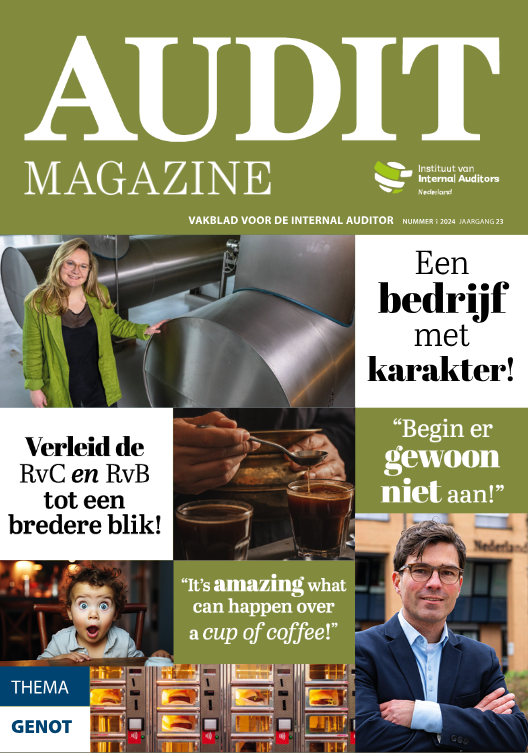Blindsided by Fraud: Skepticism Can Shine a Light
“Skepticism in Practice,” a new report by the Anti-Fraud Collaboration, a cooperative dedicated to enhancing the effectiveness of financial fraud risk management, explores the importance of more critically assessing the potential for fraud and examining some of the biases that can leave organizations blind to deceptive activities. A healthy dose of skepticism is key.
As individuals assess information, their conclusions and decisions are inevitably subject to their own unique background and biases. The process may be unconscious, unintentional, and naturally instinctive, but members of the financial reporting supply chain should be aware of their biases and the potential hindrance they can have on their ability to exercise skepticism, and work toward mitigating them.
“Oftentimes, we view the activities of others through the lens of our own experiences and biases,” said Richard F. Chambers, CIA, QIAL, CGAP, CCSA, CRMA, President and CEO of The Institute of Internal Auditors (IIA), sponsor of this white paper. “As a result, we may not recognize the potential these biases have in our ability to fully consider those activities and identify potential problems. That’s where skepticism comes in. It allows us to avoid being blindsided, and to not simply accept certain practices as appropriate. Importantly, skepticism helps us to root out fraud.”
Executing appropriate skepticism takes time and training, and it is important to strike a balance between optimism and healthy skepticism, according to “Skepticism in Practice.” With that as a backdrop, the report provides some of the tools and techniques needed to shift organizations toward a better balance between trust and skepticism as it relates to fraud and other important considerations.
“This report emphasizes the importance of all members of the financial reporting supply chain to not only be aware of unintended biases that may exist, but also to recognize the potential impact that these biases can have on their ability to exercise skepticism,” said Andrej Suskavcevic, CAE, President & CEO of Financial Executives International (FEI). “And like unconscious biases, new technologies can pose a threat to skepticism that’s easily overlooked. The very fact that emerging technologies are greeted with great fanfare and anticipation reinforces the importance of maintaining skepticism in considering the information they deliver – or conceal.”
A key element of effective skepticism is to ask tough questions, especially during a crisis when there may be efforts to show success where none may exist. “To emerge successfully from a crisis, it is crucial to focus on both good and bad outcomes,” said Peter R. Gleason, CEO of the National Association of Corporate Directors (NACD). “When faced with surprising results, leaders should ask how an individual or a business unit got such phenomenal results. One solid piece of advice in this paper is to assume nothing, and check everything.”
“Skepticism in Practice” presents two key steps in using skepticism in deterring and detecting fraudulent activity, including:
- Recognize the limits of your own objectivity.
This involves being keenly aware of a tendency to make assumptions; be sure to ask tough questions; admit that you may have made an error, then take corrective actions in your assumptions; understand how to employ varying levels of skepticism depending on the circumstances; and keep in mind that the output is only as good as the input, so even automated information may not be reliable.
- Don’t jump to conclusions.
Keep an eye out for additional, possibly contradictory information; look beyond the obvious or even what your gut is telling you (confirmation bias); and don’t hesitate to seek out additional information to confirm – and reconfirm – your initial findings.
“COVID-19 and the resulting remote work environment are heightening the risk of fraud at public companies,” said Julie Bell Lindsay, Executive Director of the Center for Audit Quality (CAQ). “Strong fraud detection and deterrence requires all participants in the reporting system – especially public company management, whose ultimate responsibility it is to design and implement controls to deter and detect fraud, but also audit committees, internal auditors and the external auditors – to exercise skepticism.”
“Skepticism in Practice” is available for download through The IIA and the Anti-Fraud Collaboration.
Chambers and CAQ’s Margot Cella, Vice President, Research and Anti-Fraud Initiatives, discuss the role of skepticism in deterring and detecting fraud, how to effectively exercise and enhance skepticism, and proactive steps to overcome challenges posed by the COVID-19 crisis in this CAQ Anti-Fraud In Action video. Or read Richard Chambers blog about this topic.







